第17章 The Three Johns(4)
It was gardening time,and the three Johns were putting in every spare moment in the little paling made of willow twigs behind the house.It was little enough time they had,though,for the cattle were new to each other and to the country,and they were hard to manage.It was generally conceded that Waite had a genius for herd-ing,and he could take the "mad"out of a fractious animal in a way that the others looked on as little less than superhuman.
Thus it was that one day,when the clay had been well turned,and the seeds arranged on the kitchen table,and all things prepared for an afternoon of busy planting,that Waite and Henderson,who were needed out with the cattle,felt no little irritation at the inex-plicable absence of Gillispie,who was to look after the garden.It was quite night-fall when he at last returned.Supper was ready,although it had been Gillispie's turn to prepare it.
Henderson was sore from his saddle,and cross at having to do more than his share of the work."Damn yeh!"he cried,as Gillispie appeared."Where yeh been?""Making garden,"responded Gillispie,slowly.
"Making garden!"Henderson indulged in some more harmless oaths.
Just then Gillispie drew from under his coat a large and friendly looking apple-pie.
"Yes,"he said,with emphasis;"I've bin a-makin'garden fur Mis'Ford."And so it came about that the three Johns knew her and served her,and that she never had a need that they were not ready to supply if they could.Not one of them would have thought of going to town with-out stopping to inquire what was needed at the village.As for Catherine Ford,she was fighting her way with native pluck and maternal unselfishness.If she had feared solitude she did not suffer from it.The activity of her life stifled her fresh sorrow.
She was pleasantly excited by the rumors that a railroad was soon to be built near the place,which would raise the value of the claim she was "holding down"many thou-sand dollars.
It is marvellous how sorrow shrinks when one is very healthy and very much occupied.
Although poverty was her close companion,Catherine had no thought of it in this prim-itive manner of living.She had come out there,with the independence and determi-nation of a Western woman,for the purpose of living at the least possible expense,and making the most she could while the baby was "getting out of her arms."That process has its pleasures,which every mother feels in spite of burdens,and the mind is happily dulled by nature's merciful provision.With a little child tugging at the breast,care and fret vanish,not because of the happiness so much as because of a certain mammal complacency,which is not at all intellectual,but serves its purpose better than the pro-foundest method of reasoning.
So without any very unbearable misery at her recent widowhood,this healthy young woman worked in field and house,cared for her little ones,milked the two cows out in the corral,sewed,sang,rode,baked,and was happy for very wholesomeness.Some-times she reproached herself that she was not more miserable,remembering that long grave back in the unkempt little prairie cemetery,and she sat down to coax her sorrow into proper prominence.But the baby cooing at her from its bunk,the low of the cattle from the corral begging her to relieve their heavy bags,the familiar call of one of her neighbors from without,even the burning sky of the summer dawns,broke the spell of this conjured sorrow,and in spite of herself she was again a very hearty and happy young woman.Besides,if one has a liking for comedy,it is impossible to be dull on a Nebraska prairie.The people are a merrier divertissement than the theatre with its hackneyed stories.Catherine Ford laughed a good deal,and she took the three Johns into her confidence,and they laughed with her.There was Minerva Fitch,who insisted on coming over to tell Catherine how to raise her children,and who was almost offended that the children wouldn't die of sunstroke when she predicted.And there was Bob Ackerman,who had inflam-matory rheumatism and a Past,and who confided the latter to Mrs.Ford while she doctored the former with homoeopathic medicines.And there were all the strange visionaries who came out prospecting,and quite naturally drifted to Mrs.Ford's cabin for a meal,and paid her in compliments of a peculiarly Western type.And there were the three Johns themselves.Catherine con-sidered it no treason to laugh at them a little.
Yet at Waite she did not laugh much.
There had come to be something pathetic in the constant service he rendered her.The beginning of his more particular devotion had started in a particular way.Malaria was very bad in the country.It had carried off some of the most vigorous on the prairie,and twice that summer Catherine herself had laid out the cold forms of her neighbors on ironing-boards,and,with the assistance of Bill Deems of Missourah,had read the burial service over them.She had averted several other fatal runs of fever by the con-tents of her little medicine-case.These remedies she dealt out with an intelligence that astonished her patients,until it was learned that she was studying medicine at the time that she met her late husband,and was persuaded to assume the responsibilities of matrimony instead of those of the medi-cal profession.
One day in midsummer,when the sun was focussing itself on the raw pine boards of her shanty,and Catherine had the shades drawn for coolness and the water-pitcher swathed in wet rags,East Indian fashion,she heard the familiar halloo of Waite down the road.This greeting,which was usually sent to her from the point where the dip-ping road lifted itself into the first view of the house,did not contain its usual note of cheerfulness.Catherine,wiping her hands on her checked apron,ran out to wave a welcome;and Waite,his squat body looking more distorted than ever,his huge shoulders lurching as he walked,came fairly plung-ing down the hill.